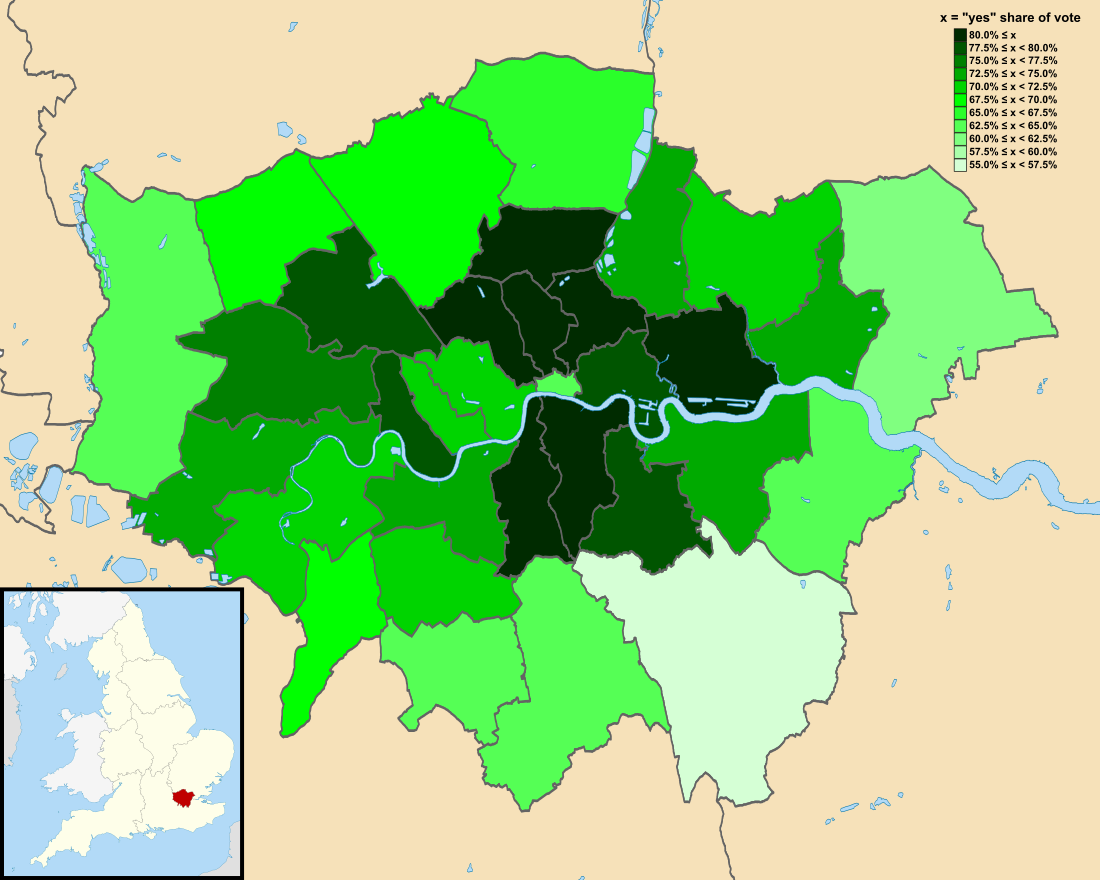Top Qs
Timeline
Chat
Perspective
1998 Greater London Authority referendum
Referendum held in Greater London on 7 May 1998 From Wikipedia, the free encyclopedia
Remove ads
The 1998 Greater London Authority referendum was held in Greater London on 7 May 1998. The referendum asked whether there was support for creating a Greater London Authority composed of a directly elected Mayor of London and a London Assembly to scrutinise the Mayor's actions. Voter turnout was low, at just 34.1%.[1] The referendum was held under the Greater London Authority (Referendum) Act 1998 provisions. Polling day coincided with the 1998 London local elections.
Remove ads
Background
Labour's 1997 general election manifesto, New Labour, New Life for Britain, mentioned establishing a directly elected mayor and authority.[2]
Following a referendum to confirm popular demand, there will be a new deal for London, with a strategic authority and a mayor, each directly elected.
— New Labour, New Life for Britain
This would be the first London-wide government since the abolition of the Greater London Council.[3]
The government published a green paper with the title New Leadership for London in July 1997.[4] This laid out the principles of the GLA: a strong mayor and a "strategic" assembly.[4]
The full proposals were confirmed in a March 1998 white paper entitled A Mayor and Assembly for London which set out the full details of the proposal.[4]
Remove ads
Referendum question
The referendum asked voters the following question:
Are you in favour of the government’s proposals for a Greater London Authority, made up of an elected mayor and a separately elected assembly?
— Form of ballot paper, Greater London Authority (Referendum) Act 1998, Schedule
Voters were permitted to select either a simple YES or NO answer.
Result
Summarize
Perspective
Overall result
Results by borough
The 'Yes' vote won in every London Borough, though support was generally larger in Inner London than in Outer London.[5] The lowest support figures were 60.5% in Havering and 57.1% in Bromley; the greatest were 83.8% in Haringey and 81.8% in Lambeth.[5] The income level of boroughs was an even greater factor affecting the outcome.[citation needed][5]
Remove ads
Aftermath
The government passed the Greater London Authority Act 1999, creating the Greater London Authority. The first elections for the Mayor of London and the London Assembly were held in May 2000.
The Conservatives criticised the referendum's low turnout, and suggested that it undermined the legitimacy of the referendum.[1] The Labour Party refuted this suggestion, by instead suggesting that many people had decided to not vote because they perceived the result as a foregone conclusion, and that there was significant enthusiasm for a "strong, independent, political voice that can speak up for Londoners".[1][6]
The establishment of directly elected mayors was suggested as possibly as constitutionally significant as Scottish devolution or Welsh devolution.[7]
Remove ads
References
External links
Wikiwand - on
Seamless Wikipedia browsing. On steroids.
Remove ads


